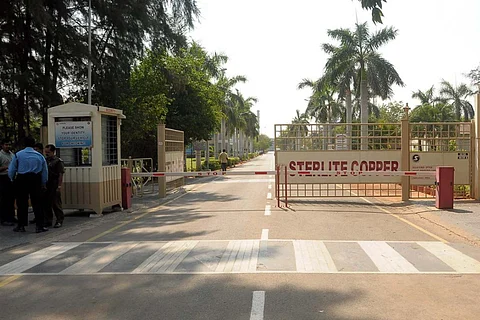

Vedanta that owns the Sterlite copper smelting plant in Thoothukudi has filed another petition in the Supreme Court to reopen the plant citing the continued rains in Tamil Nadu. The petition is additional to the one filed in 2020, pending in court, asking that the conglomerate be allowed to carry out care and maintenance work.
Vedanta claims that the Sterlite plant “has been steeply deteriorating” since it has been “lying shut since May 2018”. It further claims that “massive corrosion has occurred leading to the collapse of the structures and critical assets due to lack of regular maintenance and rain water accumulation.” The petition asks the court to list the matter on an urgent basis.
In the petition, Vedanta also claims that damages have been sustained in the copper smelter, electrolytic refinery, sulfuric acid plant (SAP), phosphoric acid plant (PAP), and that their condition is hazardous. It adds that the Local Level Monitoring Committee (LLMC) visited the plant where rain water has apparently stagnated “leading to further damage” and that they have “understood the necessity of safety assessment and essential maintenance to ensure safety of the assets and structures.” The petition also says that there had been acid leakages in January to March this year and more such leakages will lead to additional damages.
Vedanta alleges that the acid leakage had been reported to the respondents (state of Tamil Nadu and others) but they had “failed to take any action to address the same”, claiming that if the issue is “unaddressed, may adversely affect the environment.”
In August 2020, the Supreme Court had refused to grant interim relief to Vedanta to reopen the Thoothukudi plant. The conglomerate had filed a plea in the court seeking an order to reopen the factory temporarily for 3 to 4 months at least to carry out administrative and basic maintenance work.
In December the same year and in January 2021, the Supreme Court had refused to recall its own order barring Vedanta from reopening the Thoothukudi site.
Vedanta’s founder and chairman Anil Agarwal had moved the Supreme Court on August 26, 2020 after the Madras High Court refused to allow the reopening of the plant.
In 2018, residents along with activists had organised sustained protests against the plant alleging environmental pollution since the 1990s when it had originally been set up. Thirteen civilians were shot dead during the agitations.
On May 24 2018, the Tamil Nadu Government shut down the plant for violating environmental norms. In June 2018, the company had approached the National Green Tribunal (NGT) challenging the closure orders of the state government. It had argued that the state government’s response was disproportionate. The NGT found the closure of the plant to be ‘unjustifiable’ and ‘non-sustainable’.
On February 18, 2019, the Supreme Court had set aside the NGT order that allowed the opening of the plant and asked the company to approach the Madras High Court for interim relief.